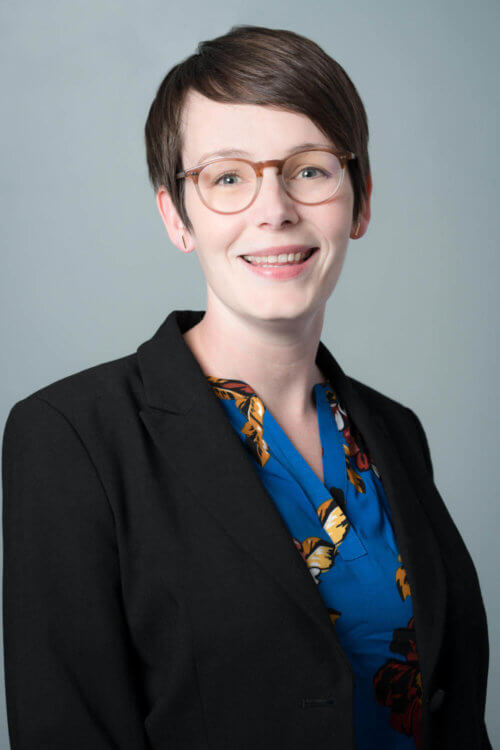
2018 Legal Services Award: Lindsy Miles-Hare
06 November 2018 Blog, Featured
One of the most pressing priorities for the public-interest community today is the protection of the besieged rights of those who came to American seeking freedom, safety, and a better life. Our recognition of that present-day priority is reflected by our recognition of Ayuda’s Lindsy Miles-Hare as our 2018 Legal Services Award Recipient.
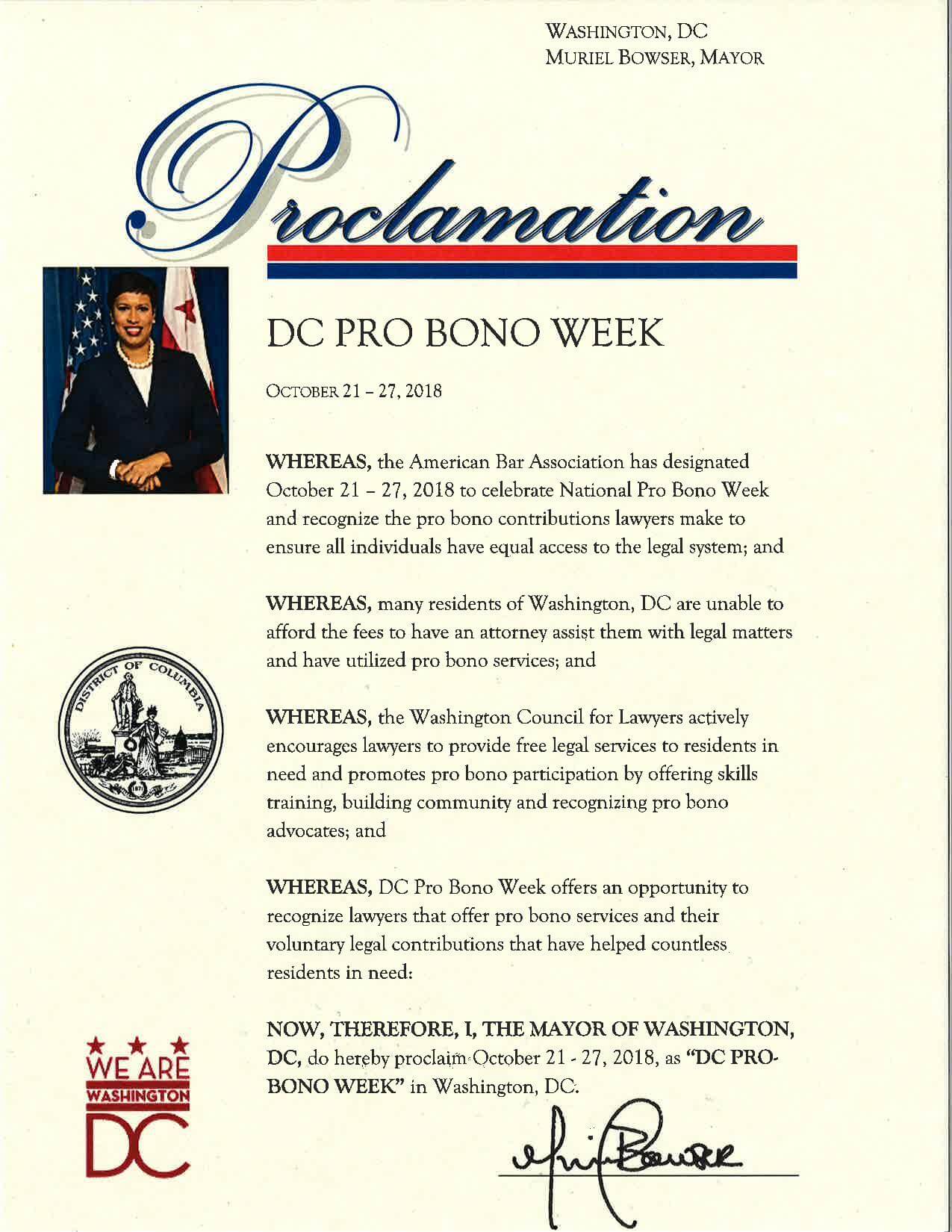
DC Pro Bono Week 2018 in photos!
26 October 2018 Blog, DC Pro Bono Week, Featured
Photos from the 2018 DC Pro Bono Week.
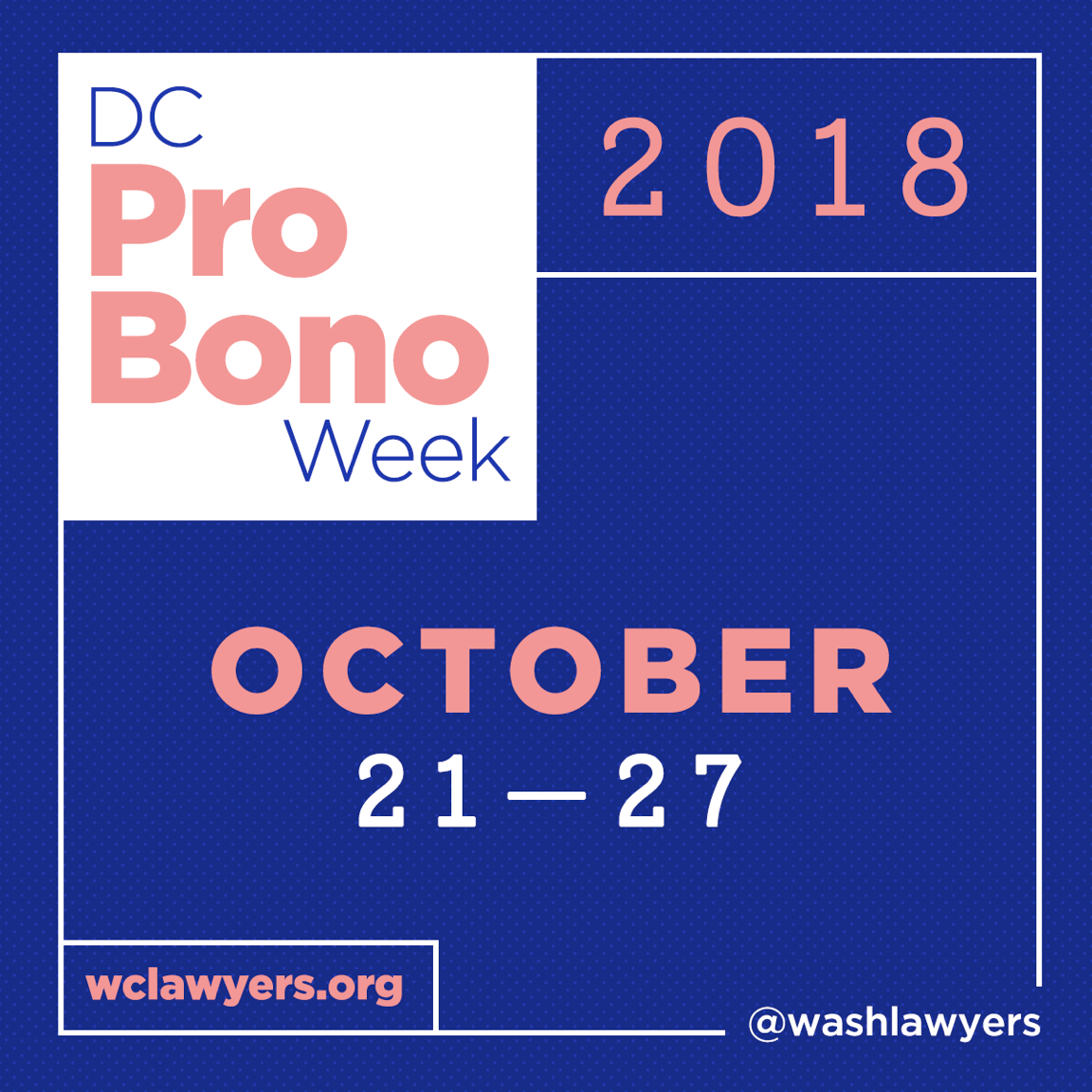
DC Pro Bono Week 2018 Profiles: The Complete Set
26 October 2018 Blog, DC Pro Bono Week, Featured
During DC Pro Bono Week 2018 we profiled lawyers who made a profound difference in the lives of their pro bono clients despite heavy demans on their time. Here are their stories.

We’re hiring! (Part-time, Administrative Director position)
19 October 2018 Blog, Featured
We are seeking a permanent, part-time Administrative Director to help us further our mission of promoting pro bono service and public-interest law. The Administrative Director will provide behind-the-scenes support for our membership outreach, training programs, and access to justice advocacy. Learn more here. Priority will be given to those who apply before November 5.
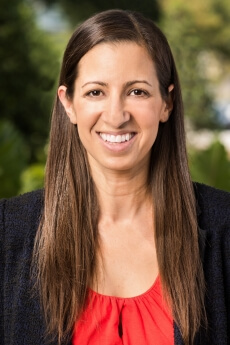
Jessica Steinberg: Focused on Helping Tenants
17 October 2018 Blog, East River of the River Profiles, Featured
By Jackie Rogers Jessica Steinberg’s professional life has been marked by a profound commitment to helping the legally underserved. From her early days as the sole legal aid housing attorney in San Mateo County, California, this clinical professor at George Washington University Law School has worked on a range of legal issues to promote economic and social justice. Professor Steinberg’s work in California highlighted for her the many hurdles disadvantaged tenants face when they seek legal remedies from their landlords for housing code violations: fear of landlord retaliation, extended time away from work, and a lack of affordable transportation and child care options all limit opportunities to combat unsafe housing. Moreover, many poor tenants are forced to navigate a confusing and intimidating legal system on their own. Professor Steinberg’s move to D.C. and transition to academia were part of her commitment to studying and mobilizing support behind new and innovative approaches to improving the legal resources and options available to the underserved. Establishment of the D.C. Housing Conditions Court in 2010 represented just such an approach, and became the central focus of Professor Steinberg’s careful study for nearly two years. The Court was set up to address legal issues faced by tenants and to expedite cases for those living in uninhabitable conditions. The Court was born out of widespread agreement that a court with a single focus on housing code violations was needed, as existing city agencies and courts were simply overworked and overburdened. The D.C. Housing Conditions Court implemented two innovative approaches. First, the court employs field inspectors to investigate alleged violations, rather than requiring tenants to produce proof of unsafe conditions themselves. Second, judicial progress hearings are held until repairs are made, thereby holding landlords more accountable for fixing violations. Professor Steinberg’s research indicates that the Housing Conditions Court is more successful than many traditional courts in addressing habitability issues, and tenants who appear without lawyers are less prejudiced by unfair outcomes. Professor Steinberg would like to see this D.C. Housing Conditions Court approach expanded to other cities and counties. But she also wants more done to train and inspire the next generation of public interest attorneys and those willing to provide pro bono services. “The key is to train young law students and lawyers on these issues early in their careers,” she explains. “We need to provide them more direct, hands-on exposure to the many hurdles facing low-income populations.” As a professor at George Washington University, Professor Steinberg will continue conveying an inspiring message to her students. Her goal is to ensure that “all law students and attorneys understand the special privilege we’ve been afforded as members of the profession, and the obligation that comes with it to fight for justice and equality.” Jackie Rogers was an intern for Washington Council of Lawyers in 2017.
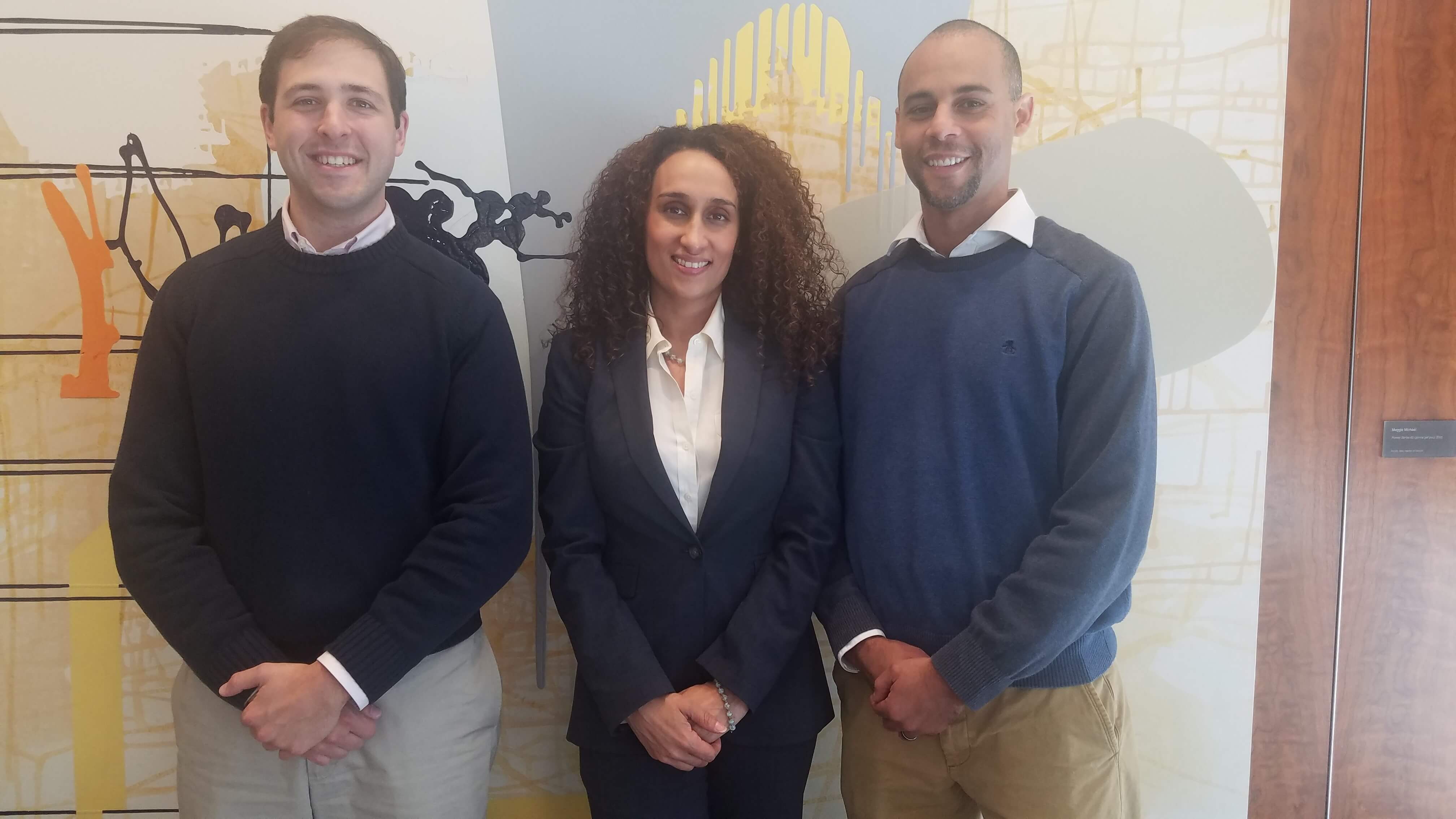
Pro Bono Week 2018 Profile: Nicholas Nyemah, Dominique Casimir, and Daniel Dovev – Asylum Protection
16 October 2018 Blog, DC Pro Bono Week, Featured
Nicholas Nyemah, Dominique Casimir, and Daniel Dovev from Arnold & Porter LLP, recently won an asylum claim for an LGBT man from Swaziland who faced death in his home country. Working with their mentors from CAIR Coalition, the team’s case was one of the first before a new immigration judge. There were a number of unusual challenges in the case and the team identified and tackled each one with sharp precision and elegance. Their arguments were so compelling that DHS stipulated to 90% of the elements. The hearing lasted less than 30 minutes and the client is now reunited with his community here in the United States.
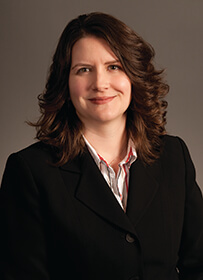
Pro Bono Week 2018: Tracey Ohm – Pro Bono Attitude of Gratitude
11 October 2018 Blog, DC Pro Bono Week, Featured
For Tracey Ohm, of counsel at Stinson Leonard Street LLP and dedicated D.C. Bar Pro Bono Center volunteer, the reward of pro bono work isn’t out-of-the-park wins. It’s the gratitude she gets for the simple act of being an advocate. “The clients are so grateful to have someone standing up for them,” she said. “That’s both what I enjoy and what keeps me going.”
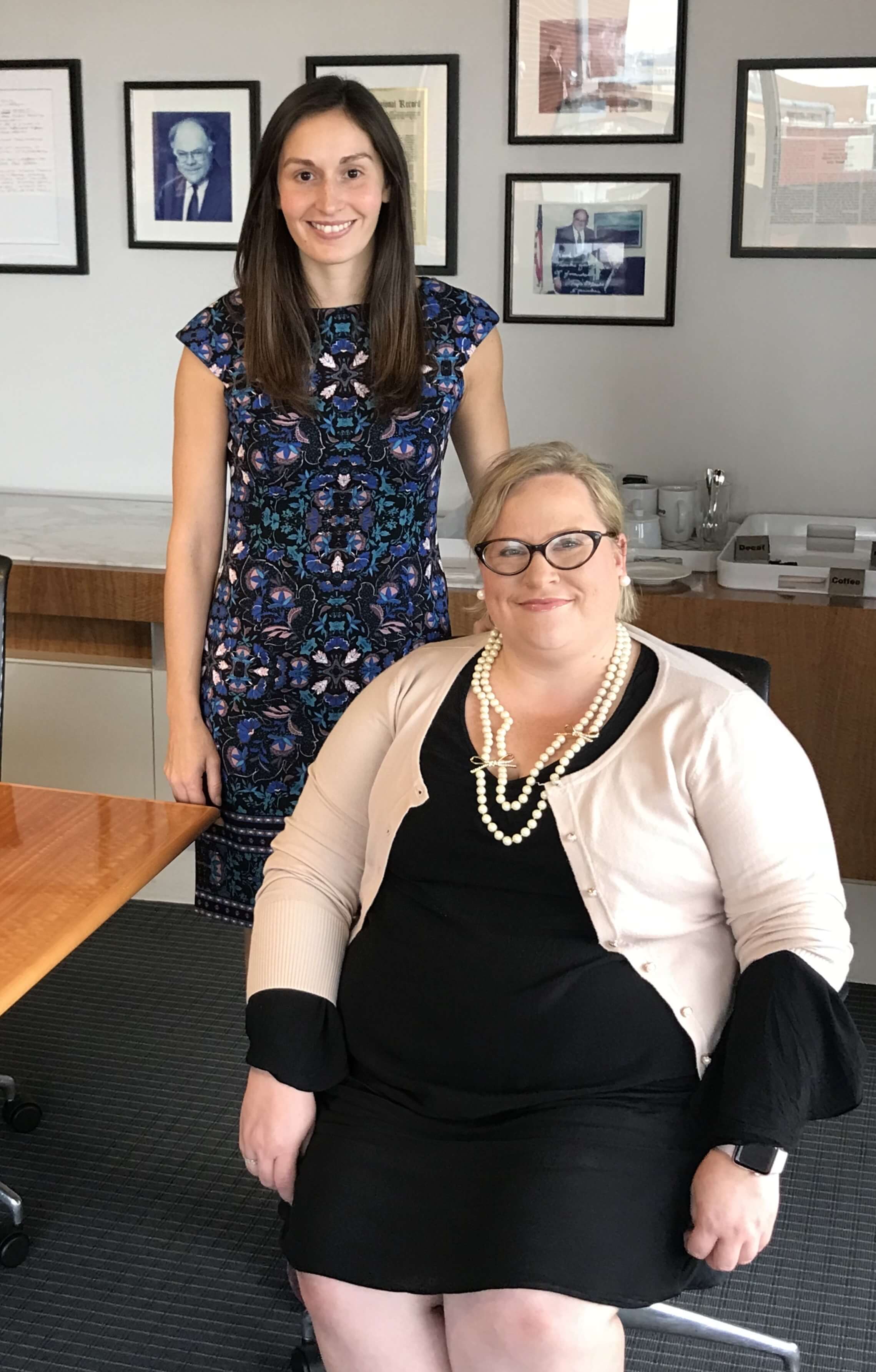
Pro Bono Week 2018 Profile: Amanda McGinn & Megan Greer – Representing A Devoted Grandmother
11 October 2018 Blog, DC Pro Bono Week, Featured
Amanda McGinn, an associate at Akin Gump Strauss Hauer & Feld LLP, had just presented her Children’s Law Center pro bono caregiver custody case before a DC judge, alongside co-counsel, Megan Greer, a counsel at Akin Gump. While daunting, Amanda knew that together, and through the resources Children’s Law Center provides its pro bono teams, she and Megan could use their legal skills to help children thrive.
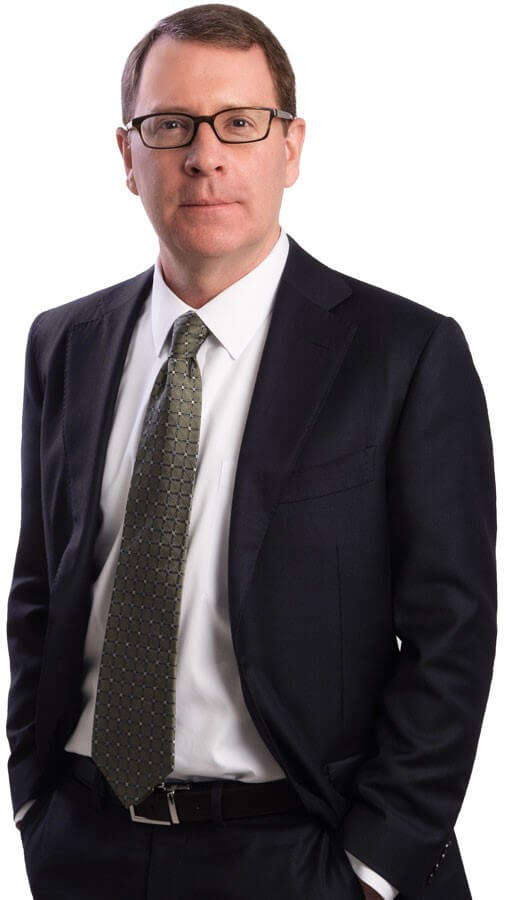
Pro Bono Week 2018 Profile: Brad Lennie – Representing Unaccompanied Children
11 October 2018 Blog, DC Pro Bono Week, Featured
Representing unaccompanied immigrant and refugee children is challenging. Bradley T. Lennie, a partner at Pepper Hamilton, LLP, embodies the patience, flexibility, and compassion necessary to successfully advocate for KIND’s clients.






